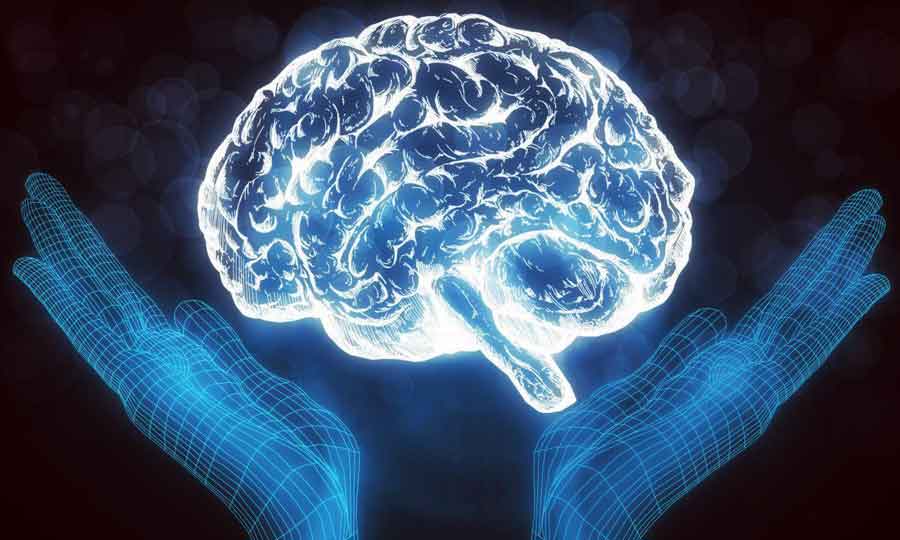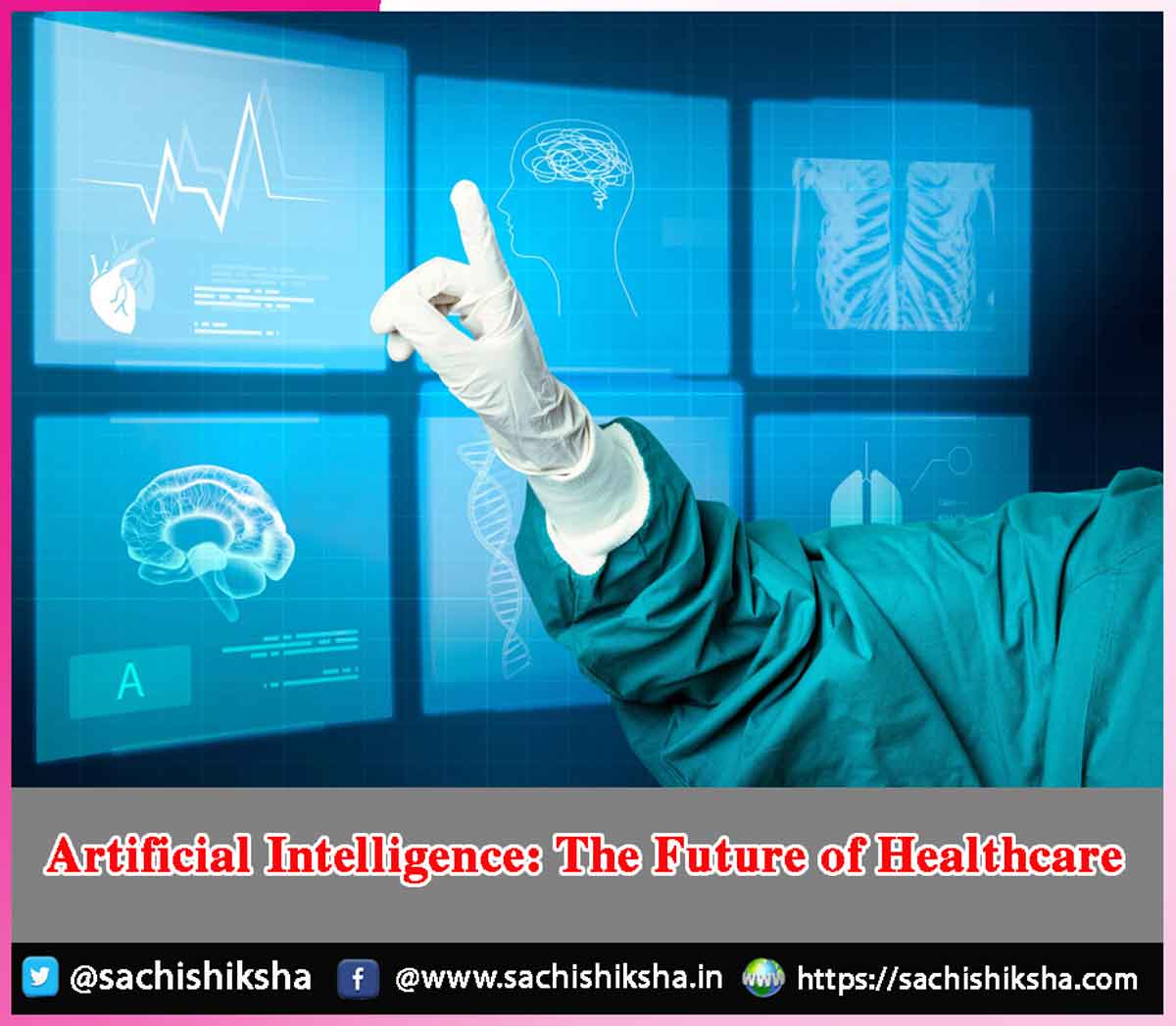Artificial Intelligence: The Future of Healthcare
Introduction: Artificial Intelligence (AI) is revolutionizing numerous fields, and healthcare is no exception. The integration of AI into healthcare promises to enhance the accuracy of diagnoses, personalize treatments, and streamline administrative processes. This transformation, driven by advances in machine learning, data analytics, and robotics, has the potential to not only improve patient outcomes but also reshape the entire healthcare landscape. This essay delves into the multifaceted impact of AI on healthcare, exploring its current applications, potential benefits, challenges, and future prospects.
Table of Contents
The Role of AI in Healthcare

Diagnostic Tools:
AI’s ability to analyse large datasets and identify patterns with high precision is particularly valuable in diagnostics. Machine learning algorithms can process medical images, such as X-rays, MRIs, and CT scans, with remarkable accuracy.
Medical Imaging:
AI algorithms can enhance the accuracy of imaging analyses by detecting abnormalities that might be missed by the human eye. For instance, AI systems are increasingly used in radiology to identify tumours, fractures, and other conditions in imaging scans. Studies have shown that AI can achieve diagnostic performance comparable to or even exceeding that of radiologists.
Predictive Analytics:
AI tools can predict the likelihood of developing certain conditions based on patient data, including genetic information, lifestyle factors, and medical history. For example, AI models can assess the risk of cardiovascular disease by analysing patterns in blood test results and patient demographics.
Treatment Personalization:
Personalized medicine aims to tailor medical treatments to individual patients based on their unique genetic, environmental, and lifestyle factors. AI facilitates this approach by analysing complex datasets to identify optimal treatment plans.
Genomics:
AI can process genomic data to identify genetic mutations associated with specific diseases. This capability allows for the development of targeted therapies that are more effective and have fewer side effects compared to traditional treatments. For example, AI-driven analysis of cancer genomics can lead to personalized treatment plans that target the specific genetic alterations in a patient’s tumour.
Drug Discovery:
AI accelerates the drug discovery process by predicting how different compounds will interact with biological targets. Machine learning algorithms can analyse vast libraries of chemical compounds to identify promising candidates for new drugs. This has the potential to significantly shorten the drug development timeline and reduce costs.
Operational Efficiency:
AI can streamline healthcare operations, reducing costs and improving the quality of care. Administrative tasks, such as scheduling, billing, and patient management, can be optimized using AI technologies.
Automation:
AI-powered automation tools can handle routine administrative tasks, freeing up healthcare professionals to focus on patient care. For example, AI can automate appointment scheduling, manage patient records, and handle billing processes, reducing the administrative burden on healthcare providers.
Workflow Optimization:
AI systems can analyse data to optimize hospital workflows, such as patient flow, resource allocation, and staff scheduling. This can lead to more efficient use of resources, reduced wait times, and improved patient satisfaction.
Patient Engagement:
AI can enhance patient engagement by providing personalized health information and support. Chatbots, virtual assistants, and AI-driven apps can offer patients timely information and guidance.
Virtual Health Assistants:
AI-powered chatbots and virtual assistants can answer patient queries, provide health information, and offer guidance on managing chronic conditions. These tools can operate 24/7, providing patients with immediate access to information and support.
Wearable Devices:
AI-enhanced wearable devices can monitor vital signs and other health metrics in real time. These devices can alert patients and healthcare providers to potential issues, such as irregular heartbeats or elevated blood glucose levels, enabling timely intervention.
Benefits of AI in Healthcare
The integration of AI into healthcare brings numerous benefits, including improved diagnostic accuracy, personalized treatments, enhanced operational efficiency, and better patient outcomes.
Improved Accuracy:
AI algorithms can analyse complex medical data with high precision, leading to more accurate diagnoses and treatment recommendations. This can reduce the likelihood of errors and ensure that patients receive the most appropriate care.
Cost Savings:
By streamlining administrative processes and optimizing resource use, AI can help reduce healthcare costs. Additionally, AI-driven early detection and prevention strategies can lead to cost savings by addressing health issues before they require more extensive and expensive treatments.
Enhanced Access to Care:
AI can expand access to healthcare services, particularly in underserved areas. Telemedicine platforms powered by AI can provide remote consultations and support, bridging the gap between patients and healthcare providers.
Personalized Care:
AI enables personalized treatment plans based on individual patient data, leading to more effective and targeted therapies. This approach can improve patient outcomes and reduce the risk of adverse effects associated with one-size-fits-all treatments.
Challenges and Considerations
Despite its potential, the integration of AI into healthcare faces several challenges and considerations.
Data Privacy and Security:
The use of AI in healthcare involves handling sensitive patient data, raising concerns about data privacy and security. Ensuring that AI systems comply with regulations such as the Health Insurance Portability and Accountability Act (HIPAA) and other data protection laws is crucial to maintaining patient trust and safeguarding personal information.
Ethical and Bias Issues:
AI systems can inadvertently perpetuate biases present in the training data. For example, if an AI model is trained on data that reflects existing healthcare disparities, it may produce biased outcomes that exacerbate these inequalities. Addressing these ethical concerns requires careful attention to data quality, algorithm transparency, and ongoing monitoring.
Integration with Existing Systems:
Integrating AI into existing healthcare systems can be complex. Ensuring interoperability between AI tools and electronic health records (EHRs) is essential for seamless data exchange and effective use of AI-generated insights.
Training and Adoption:
Healthcare professionals need to be trained to effectively use AI tools and interpret their results. Additionally, there may be resistance to adopting new technologies, which requires ongoing education and support to facilitate a smooth transition.
Future Prospects
The future of AI in healthcare is promising, with ongoing research and development aimed at addressing current challenges and expanding AI capabilities.
Advances in AI Algorithms:
Continued advancements in machine learning algorithms and data analytics will enhance AI’s ability to analyse complex medical data and make accurate predictions. This will lead to more effective diagnostic and treatment tools.
Integration with Genomics:
AI will increasingly play a role in genomics, enabling more precise and personalized medicine. The integration of AI with genomic data will facilitate the development of targeted therapies and improve our understanding of genetic diseases.
Expansion of Telemedicine:
AI will continue to drive the growth of telemedicine, making healthcare more accessible and convenient for patients. Virtual health assistants, remote monitoring, and AI-driven diagnostics will become more prevalent in routine care.
Ethical and Regulatory Frameworks:
As AI becomes more embedded in healthcare, developing robust ethical and regulatory frameworks will be essential. These frameworks will ensure that AI systems are used responsibly and that patient’s rights and safety are protected.
Conclusion
Artificial Intelligence is poised to transform the healthcare industry by enhancing diagnostic accuracy, personalizing treatments, improving operational efficiency, and increasing patient engagement. While there are challenges to overcome, including data privacy concerns, ethical issues, and integration complexities, the potential benefits of AI in healthcare are substantial. As technology continues to advance, AI will play an increasingly central role in shaping the future of healthcare, offering new opportunities for improving patient outcomes and optimizing healthcare delivery. Embracing AI’s potential while addressing its challenges will be key to realizing its full benefits and ensuring a brighter, healthier future for all.













































